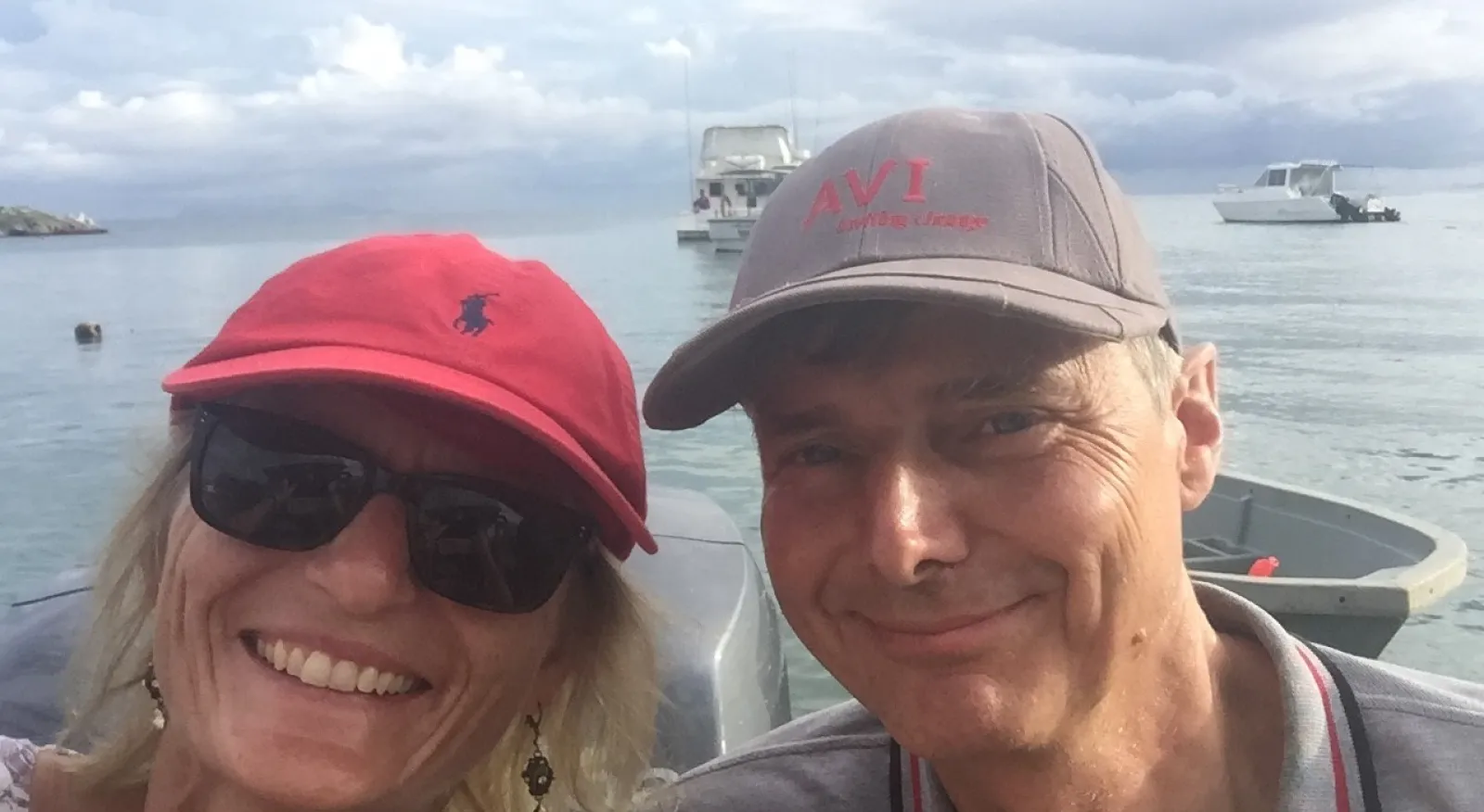'Going through changes and challenges together'
Thomas and Susi Schleich volunteered at the National Referral Hospital in Solomon Islands, Thomas as a Procurement Officer, and Susi as a Diabetes Nurse Educator. Discover the highs and lows they experienced together.

When Thomas Schleich returned home after two years volunteering in Cambodia, his wife Susi was inspired to do her own assignment. A short time later, Thomas and Susi began a new volunteering journey in Solomon Islands – this time, together.
Reflecting on the challenges and rewards of volunteering as a couple, we sat down with Thomas and Susi to hear about their experience volunteering at the National Referral Hospital in Honiara, Solomon Islands.
Thomas: It was really good for our relationship to do the assignment together, because we could talk to each other every day about what we experienced. In a practical sense it worked really well that we were both working at the hospital, as we would travel together in the morning to start our work and came back home together at night.
Susi: It was so helpful to have each other as a support. Sometimes of course it’s a burden as well, because we both had to go through our own difficult experiences. I’m an emotional person so sometimes I needed to cry and poor Thomas had to deal with that. You also have other volunteers as support. We were a group of about seven volunteers and we had regular get-togethers - we always needed to share the experience.
Especially initially, spending time with fellow volunteers was very helpful to adjust and settle down.
'Volunteering changed my way of thinking'
Susi: Volunteering has changed my way of thinking when it comes to nursing. It’s such a different work environment in the Solomons. When you work with next to nothing supplies – it opens your eyes how good our life is, living in a country like Australia.
The majority of our patients came to see us with Diabetes Type Two, so a lot of our work was around education about lifestyle changes and administering medication.
It was the first time for me working in a developing country. We had so many patients come in every day – probably 40 or more. In the wound care room, there were hardly any supplies. Coming from Germany and working in Australia - the supplies are there. So that was a very new and interesting challenge for my work.
Thomas: My role as procurement officer involved a lot of liaising with hospital staff and spending time in my office on procurement planning, preparing documents and work plans.
Out of a long list of projects I concentrated on three infrastructure projects, and tried to make progress on those every day. I worked closely with the hospital CEO, internal store staff and catering staff. I also had a lot of interaction with the Ministry of Health. It was just across the road from the hospital, so I walked over many times to support the hospital.
Assignment highlights: building capacity in others
Thomas: One of the best parts of my assignment was having a local administration staff member assigned to me so I could do some capacity building. This colleague was very shy at first, but after a while he became more easy-going, and I encouraged him to take up a certificate four course for procurement based on Australian standards.
He managed to complete that course and I was very proud of that. Two of my infrastructure projects got going as well, which I was also proud of.
Susi: My highlight every day was when the nursing students were there. We had two lots of students – with about five each time, who were in the hospital for four weeks. It was really fun to work with them and share my experiences in Australia and Germany.
It was so good to see these young people who were interested to learn and improve their knowledge – especially around Diabetes Type Two.
Our advice to other couples
Thomas: I think it’s a really good idea to volunteer as a couple, if possible. It means you have a shared experience. You go through the personal changes and challenges together, so you understand what the other person is going through.
Susi: We would highly encourage couples to go together. It’s bonding – it’s an experience you will never forget.